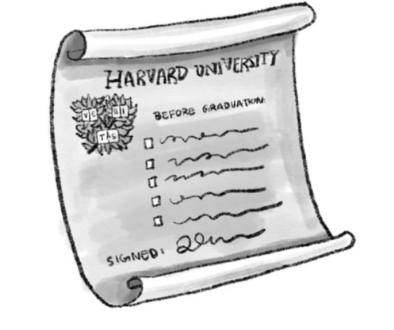In Iran the Baha’is wait for justice
As the world debates the Iran deal, Baha’is wait with bated breath. After decades of persecution by the Iranian state, the deal could be the harbinger of recognition and equal rights that the outlawed Persian community has long awaited.
Stateside criticism of the recently brokered deal has focused on the deal’s blind spot to Iran’s underhanded terrorist pursuits. But much less criticism traces itself towards Iran’s muted terrorism against its own minority Baha’is. Members of the community, outlawed in the country since its inception in the mid 19th century, have found themselves at the heart of sustained state efforts to exterminate their religion along with all its social and cultural roots.
While surrounding countries are often noted for their poor record on human rights, Iran tops them all. It is one of the only states in the world to constitutionally deny recognition to a religion. The Iranian constitution, drafted in 1906, recognizes only four major religions: Islam, Zoroastrianism, Christianity and Judaism. “We are the invisible Iranians,” says Anthony Vance, director of the US Baha’i Office of Public Affairs.
While the Iranian census does not provide statistics for the community, UCLA professor of Baha’i Studies Nader Saiedi pegs the Baha’i population at over 300,000, making it “higher than the sum of all other recognized religious minorities in the country.”
The persecution has extended beyond a matter of legal recognition. A 1991 memorandum approved by the Supreme Cultural Council of Iran prescribed that the government must deal with the community in such a way that “their progress and development are blocked,” while seeking ways to “destroy their cultural roots outside the country.” It called for a denial of schooling and employment to those who identified as Baha’i, and equated their political activities with espionage—a charge that has been wielded to arrest group members. The British embassy in Tehran, that shut shop in 2011 and resumed operations this past week, was accused of creating the Baha’i religion to cause the decline of Shia Islam.
The United Nations Baha’i office estimates that there are over 116 Baha’is serving prison sentences under false charges, in addition to several others who have been killed, assaulted or denied higher education. Bahai’s have been denied government jobs since after the 1979 revolution, and private Muslim businesses are often pressured to fire Baha’i employees.
At first glance, the problems seem to stem from Baha’ism to not mesh with Islam. For example, Baha’ism refuses to recognize Prophet Muhammad as the last prophet. “For us, the revelation of God develops as humanity progresses,” he says. Additionally, no person is born Baha’i—members actively opt into the religion. The bedrock of the Baha’i project is the idea, simple but seldom observed, that individuals are capable of making their own rational decisions. This falls at odds with the Islamic sin of ‘apostasy,’ which is the renunciation of Islamic religious belief. Past punishments for apostasy in Iran have included prison sentences and lynchings.
But religion alone cannot explain the selective discrimination faced by a single minority in a country teeming with several others. In fact, according to Saiedi, Baha’ism is the only religion in Iran that accepts the sanctity of Islam. Saiedi views Baha’ism as the most progressive movement to have swept Iran in the recent past. Its basic tenets—including the separation of church and state, rejection of a holy war, and its emphasis on individual reasoning—undermine the very foundational pillars of the modern Iranian state.
As Iran prepares for an era of global integration after nearly 45 years of sustained Western sanctions, cautious optimism runs wild in the Baha’i clan. “It could go either way—an improvement or further deterioration,” muses Vance. The normalization of relations will bolster local ‘soft’ industries such as tourism and entertainment, putting local living conditions on the global radar. This renewed focus could help the community’s struggle gain traction or, at the very least, put the Baha’i agenda on the table.
At the same time, the deal, which sidestepped Iran’s human rights record, could create a new environment of political normalization. “The clerics are deriving an increasing sense of empowerment from the deal that, in a sense, legitimized Iran’s human rights abuses externally and internally,” Saiedi quips. This implicit legitimization may inspire a sense of entitlement to continue these abuses, or even intensify them if only to chafe the West.
Aditya Agrawal’17 (adityaagrawal@college.harvard.edu) wishes the world would pay more attention to Iran’s human rights record.



October 23, 2015 @ 7:16 am
Excellent article, I am an American Baha’i and the plight of our fellow Baha’is in Iran is a cause of concern(I pray for their well being every morning and evening). I was really ambivalent about the deal my country has made with Iran because, in many ways, persecution has increased under President Rouhani, who is, ironically, considered a moderate by the western media. That being said, I believe it is a good thing that American businesses like Apple will be able to do business in Iran. Because of our global awareness and our ability to associate with all ethnicities and religions, Baha’is would be ideal employees for those companies. While, we still are prevented from getting a formal secondary education, there are other ways of getting an education(eg. online) and American companies tend to be results orientated anyway. Also, it will strengthen the hands of the people in the green movement who are also at the mercy of the current government either directly or indirectly. They will now have an independent source of income.
October 23, 2015 @ 4:07 pm
Excellent article! But the 1906 constitution is not the current one. The Iranian Baha’is, in general, have been denied their rights under Articles 19, 20, 23, 26, 28, 29, 30, 32, 37 and 38 of the Constitution of the Islamic Republic of Iran. (Adopted: 24 October 1979. Effective: 3 December 1979. Amended: 28 July 1989.)
The Constitution of the Islamic Republic of Iran is replete with human rights slogans. Yet these are all conditioned on “conformity with Islamic criteria” — which can effectively trump any of the constitutional guarantees enshrined in this official document, to wit:
Article 19 proclaims: “All people of Iran, whatever the ethnic group or tribe to which they belong, enjoy equal rights; and color, race, language, and the like, do not bestow any privilege.” Except for the Baha’is.
Article 20 declares: “All citizens of the country, both men and women, equally enjoy the protection of the law and enjoy all human, political, economic, social, and cultural rights, in conformity with Islamic criteria.” Except for the Baha’is.
Article 23 stipulates: “The investigation of individuals’ beliefs is forbidden, and no one may be molested or taken to task simply for holding a certain belief.” Except for the Baha’is.
Article 26 announces: “Political parties, societies, political and craft associations, and Islamic or recognized minority religious associations may be freely brought into being, provided that no violation is involved of the principles of independence, freedom, national unity, Islamic standards, and the foundations of the Islamic Republic.” Except for the Baha’is, who are not members of one of the “recognized minority religious associations” and are therefore excluded.
Article 28 promises: “Every person is entitled to choose the employment he wishes, so long as it is not contrary to Islam or the public interest or the rights of others. The Government is bound, with due regard for the needs of society for a variety of employment for all men, to create the possibility of employment, and equal opportunities for obtaining it.” Except for the Baha’is.
Article 29 avers: “Every person is entitled to the enjoyment of Social Security. This covers retirement, unemployment, old age, being laid off, being without a guardian, casual misfortune, accidents, and occurrences giving rise to the need for health services and medical care and treatment, through insurance etc. The Government is bound, in accordance with the laws, to use public revenues and the revenue drawn from individual contributions to provide the services and financial support mentioned above for every individual in the country.” Except for the Baha’is.
Article 30 states: “The Government is bound to make available, free of charge, educational facilities for all up to the close of the secondary stage, and to expand free facilities for higher education up to the limits of the country’s own capacity.” Except for the Baha’is.
Article 32 commands: “No person may be arrested except according to and in the manner laid down in the law. If someone is detained, the subject matter of the charge, with reasons (for bringing it), must immediately be communicated and explained in writing to the accused. Within at most 24 hours the file on the case and preliminary documentation must be referred to the competent legal authority. Legal procedures must be initiated as early as possible. Anyone infringing this principle will be punished in accordance with the law.” Except for the Baha’is.